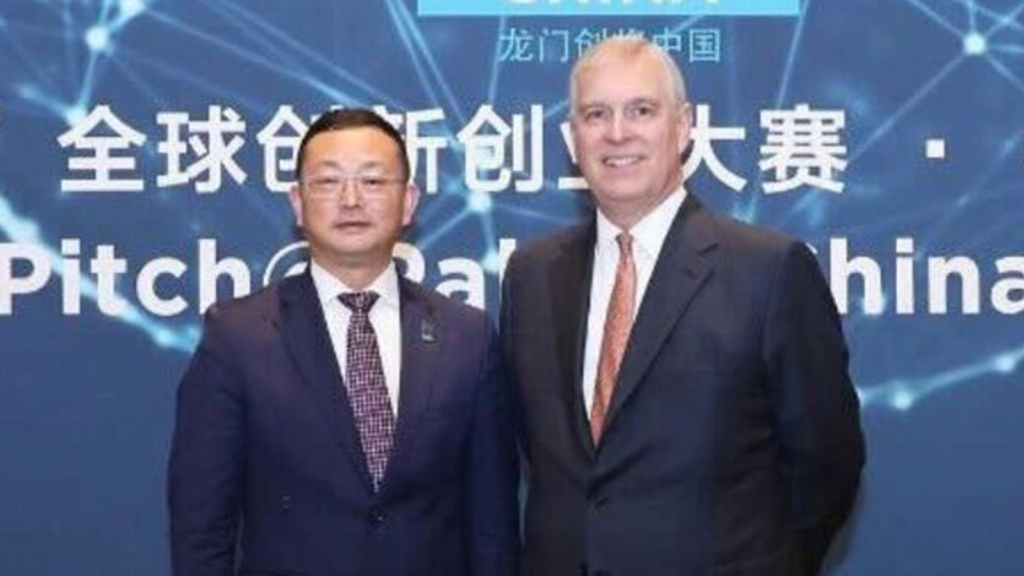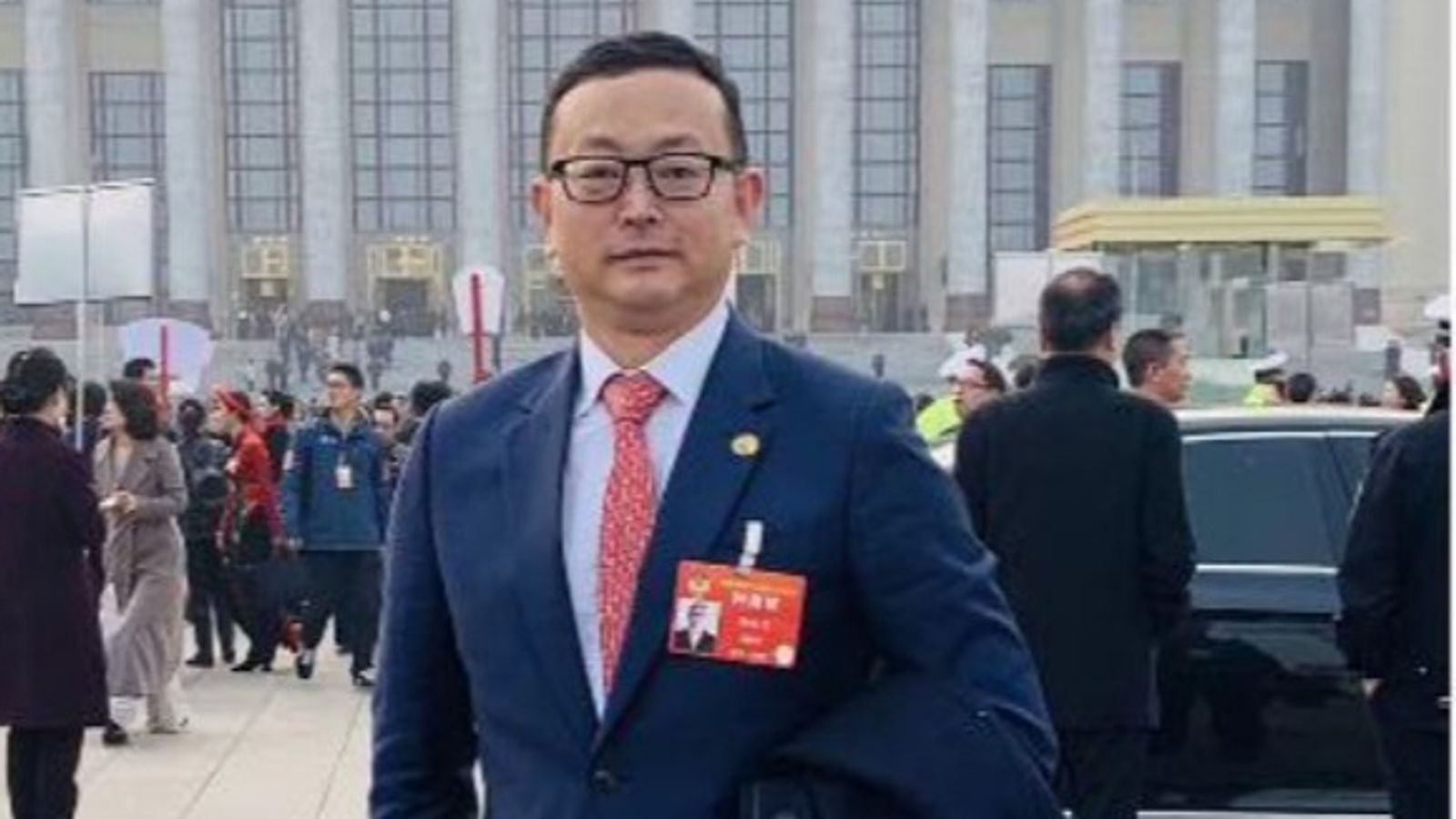The controversy surrounding alleged Chinese spy Yang Tengbo, formerly known by the anonymity order as “H6,” has reignited debates about espionage, national security, and diplomatic tensions.
Yang’s association with Prince Andrew and high-profile British figures has placed him at the center of a media storm, especially following a court decision to lift restrictions on his identity. Yang’s insistence on his innocence and claims of being a victim of political scapegoating further complicate this unfolding saga.
The Allegations and Chinese Spy Yang’s Statement of Innocence
Yang Tengbo has been accused of being a covert operative for the Chinese Communist Party’s United Front Work Department (UFWD), a body reportedly tasked with influencing foreign policies in favor of Beijing.
This suspicion led the UK’s Home Office to bar him from entering the country on national security grounds, sparking significant media interest and public speculation.
In his statement after the lifting of his anonymity order, Yang vehemently denied all allegations, declaring, “I have done nothing wrong or unlawful, and the widespread description of me as a ‘spy’ is entirely untrue.”
Yang attributed the allegations to rising political tensions between the UK and China, describing himself as a casualty of the shifting geopolitical landscape.
Read : Prince Andrew Gave Alleged Chinese Spy “H6” Access to Buckingham Palace
Yang’s defense hinges on his contention that his activities were purely professional and philanthropic, particularly through his role in Pitch@Palace China, a business initiative linked to Prince Andrew aimed at supporting entrepreneurs.
Read : China Has Developed Multiple Spy Bases in Cuba
However, his detractors argue that such platforms can serve as covert conduits for foreign influence, especially in politically charged environments.
Connections with Prince Andrew and British Politicians
The spotlight on Yang’s links to the Duke of York, Prince Andrew, has fueled much of the intrigue. Yang reportedly attended Prince Andrew’s birthday party in 2020 and was described as a “close confidant” by some accounts.
This association has raised questions about how deeply intertwined his connections were with influential figures in the UK’s political and royal circles.
Prince Andrew’s office released a statement clarifying that the Duke had ceased contact with Yang following advice from officials.

The statement also emphasized that their interactions had never involved sensitive or classified information. Nonetheless, the mere existence of such a relationship has been viewed as a potential vulnerability in terms of national security.
Yang was also photographed alongside former UK Prime Ministers David Cameron and Theresa May, further highlighting his proximity to the country’s establishment. Spokespersons for both Cameron and May dismissed these encounters as routine, explaining that prominent figures often meet numerous individuals at public events without deeper engagements.
Despite these reassurances, critics argue that Yang’s ability to navigate such high-profile circles exemplifies the strategic long-term penetration tactics often employed by foreign intelligence operations.
Espionage Allegations and the Broader UK-China Dynamic
The case of Yang Tengbo underscores the growing scrutiny of Chinese influence in Western democracies. In the UK, the United Front Work Department, which Yang is alleged to be associated with, has been flagged by intelligence experts and politicians as a significant national security concern.
Sir Iain Duncan Smith, a former Tory leader, referred to Yang as “not a lone wolf” but one among thousands of UFWD operatives allegedly working to shape policies in Beijing’s favor.
The political debate surrounding China’s influence in the UK has intensified, with calls to include China in the enhanced tier of the Foreign Influence Registration Scheme (FIRS).
This measure would mandate individuals promoting foreign interests to declare their affiliations. While the scheme is set to be implemented, its delayed rollout has drawn criticism, with some viewing it as a missed opportunity to address immediate threats.
Yang’s case draws parallels to that of Christine Lee, another individual accused of engaging in political interference on behalf of the Chinese government. Like Yang, Lee denied the allegations but failed to overturn the findings of British intelligence.

The backdrop to these cases is the broader geopolitical tension between the UK and China. While Beijing has described the accusations against Yang as baseless and politically motivated, British officials argue that China represents a prominent security threat.
This dynamic highlights the delicate balance between maintaining pragmatic diplomatic relations and addressing genuine security concerns.
The revelations about Yang Tengbo, his links to Prince Andrew, and his alleged involvement with the Chinese government’s influence operations have raised pressing questions about national security, diplomatic transparency, and the vulnerabilities of open democracies.
While Yang’s protestations of innocence cast doubt on the narrative of espionage, his close ties to prominent figures and the secrecy surrounding his activities demand careful scrutiny.
In an increasingly polarized global landscape, where trust between nations is eroding, such cases will likely continue to spark debates about the fine line between collaboration and covert influence. The UK, like other nations, faces the challenge of safeguarding its institutions while navigating complex relationships with powerful global actors like China.

